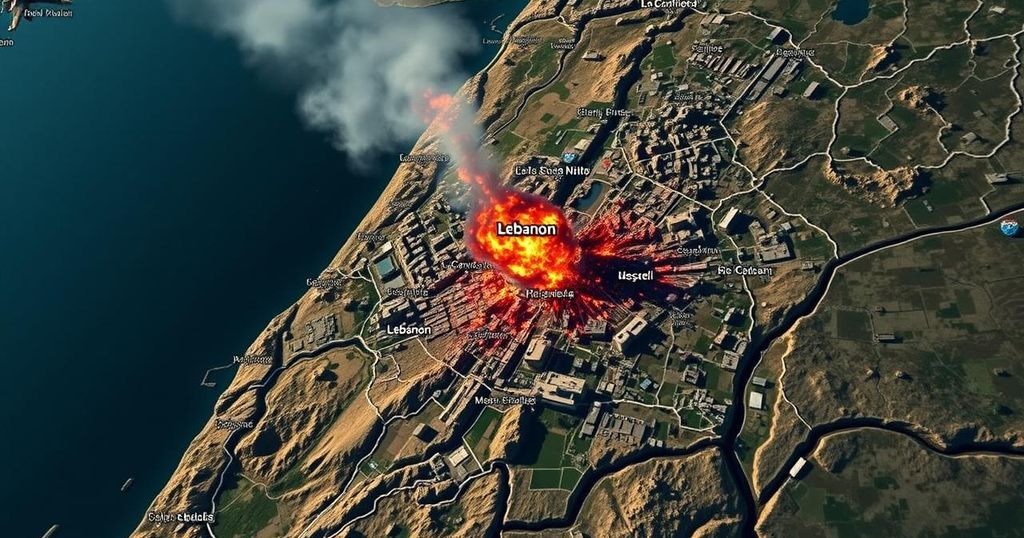Israeli Airstrike on Lebanese Government Facility Escalates Tensions and Casualties
The Israeli airstrike on a government building in Nabatieh, Lebanon, has resulted in 16 fatalities, including the mayor. Caretaker Prime Minister Najib Mikati condemned the attack as a targeted aggression against local governance and criticized the international community for its silence on Israel’s military operations. The incident marks a significant escalation in the conflict, prompting widespread condemnation in Lebanese media and raising humanitarian concerns.
Lebanon’s caretaker Prime Minister Najib Mikati has condemned the recent Israeli airstrike on a government facility in Nabatieh, which resulted in the deaths of 16 individuals, including the city’s mayor, Ahmed Kahil. This attack occurred while local officials were convened to discuss vital community services and relief efforts. Mikati characterized this assault as a deliberate targeting of local governance and criticized the international community for its silence regarding Israel’s aggressive actions in Lebanon. The airstrike marks a significant escalation in the ongoing conflict, being the first instance of an Israeli military strike on a Lebanese government building during the current hostilities. Such actions have drawn sharp rebuke as they potentially undermine the sovereignty of Lebanese institutions. Mikati articulated a sentiment of despair regarding the international response, questioning, “What solution can be hoped for in light of this reality?” Lebanese media have responded vehemently to the attack, with prominent headlines in Al Nahar newspaper declaring “Devastation and massacre,” while Al Diar referred to these actions as “Israel’s scorched-earth tactics.” The French-language publication, L’Orient-Le Jour, described the events as “Israel blows up southern Lebanon.” The Israeli military, for its part, has justified its operations in Nabatieh by claiming to target infrastructure utilized by the militant organization Hezbollah, labeling the destroyed sites as “command centers” and “weapons storage facilities.” However, the military has not provided a satisfactory explanation for the targeting of a municipal building, raising questions about the legality and morality of such an attack amidst a civilian context. The ongoing airstrikes have resulted in numerous casualties among civilians, including emergency responders and individuals fleeing the violence, exacerbating the humanitarian crisis in the region. The Israeli military has often refrained from clarifying the specific objectives of their strikes, leading to growing frustration and fear among the affected populations.
Recent tensions between Israel and Lebanon have escalated significantly, particularly due to Israeli military actions targeting Hezbollah, which is based in Lebanon. The conflict has generated widespread casualties and damage, raising substantial humanitarian concerns. The striking of government facilities poses a new dimension to the violence, potentially infringing on the sovereignty and operational capacity of Lebanese governance. This incident follows a series of airstrikes by Israel, which have increasingly targeted both militant and ancillary civilian structures, prompting outrage within Lebanon and raising questions about the broader ramifications of such military strategies in urban environments.
In summary, the Israeli airstrike that struck a government building in Nabatieh represents a formidable challenge to Lebanese sovereignty and ignites public outrage over the ongoing aggression. The attack, which resulted in multiple civilian casualties, underscores the dire humanitarian conditions and triggers critical questions regarding international complicity and the ethics of military strategies that endanger civilian lives and structures. Prime Minister Najib Mikati’s condemnation emphasizes the urgent need for international intervention and accountability regarding Israel’s actions, a sentiment echoed by the Lebanese populace and media alike.
Original Source: www.bbc.com




Post Comment